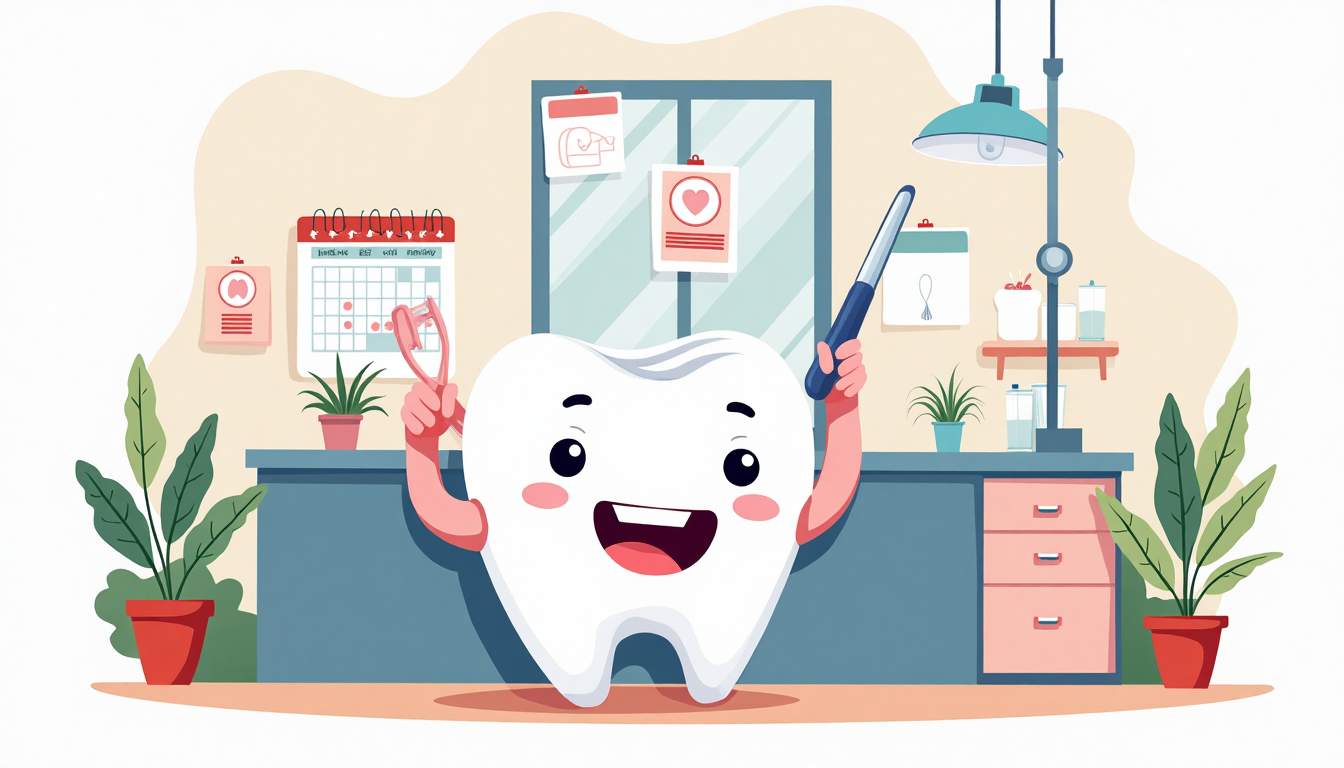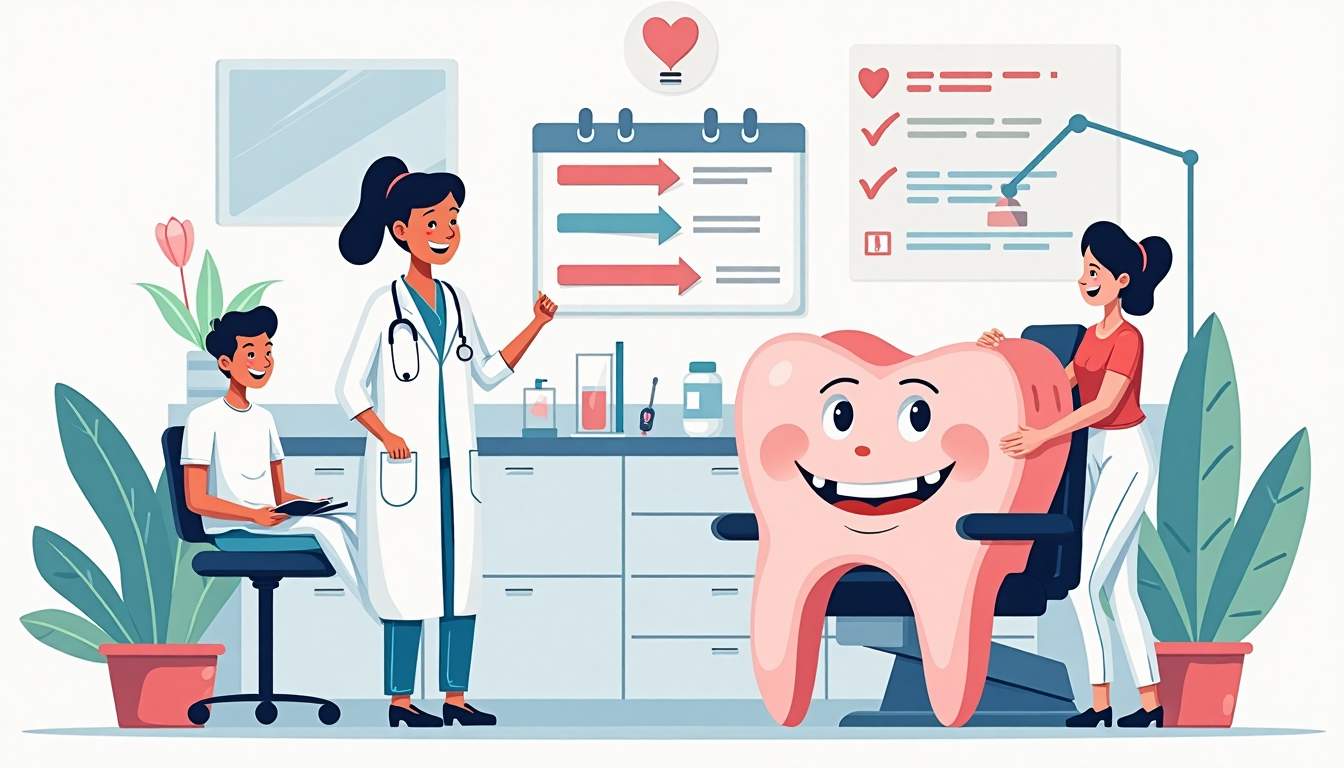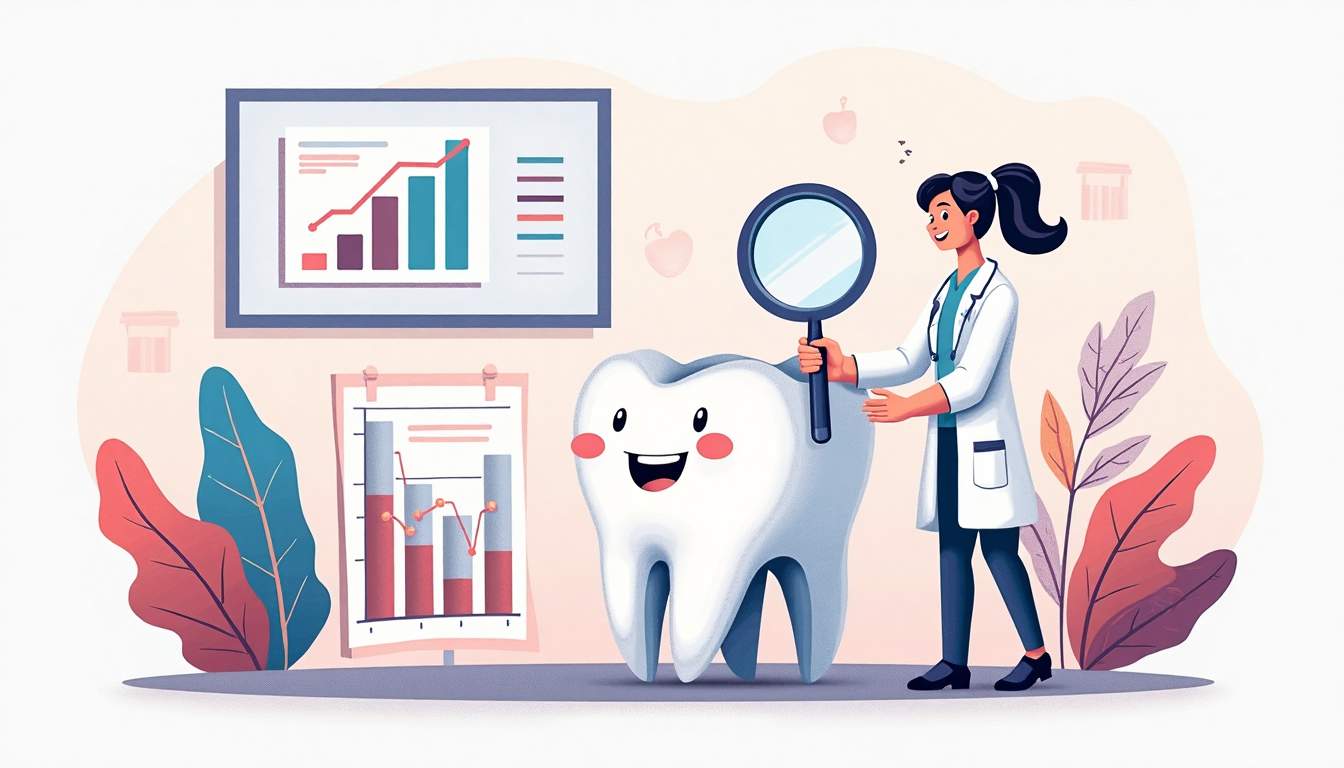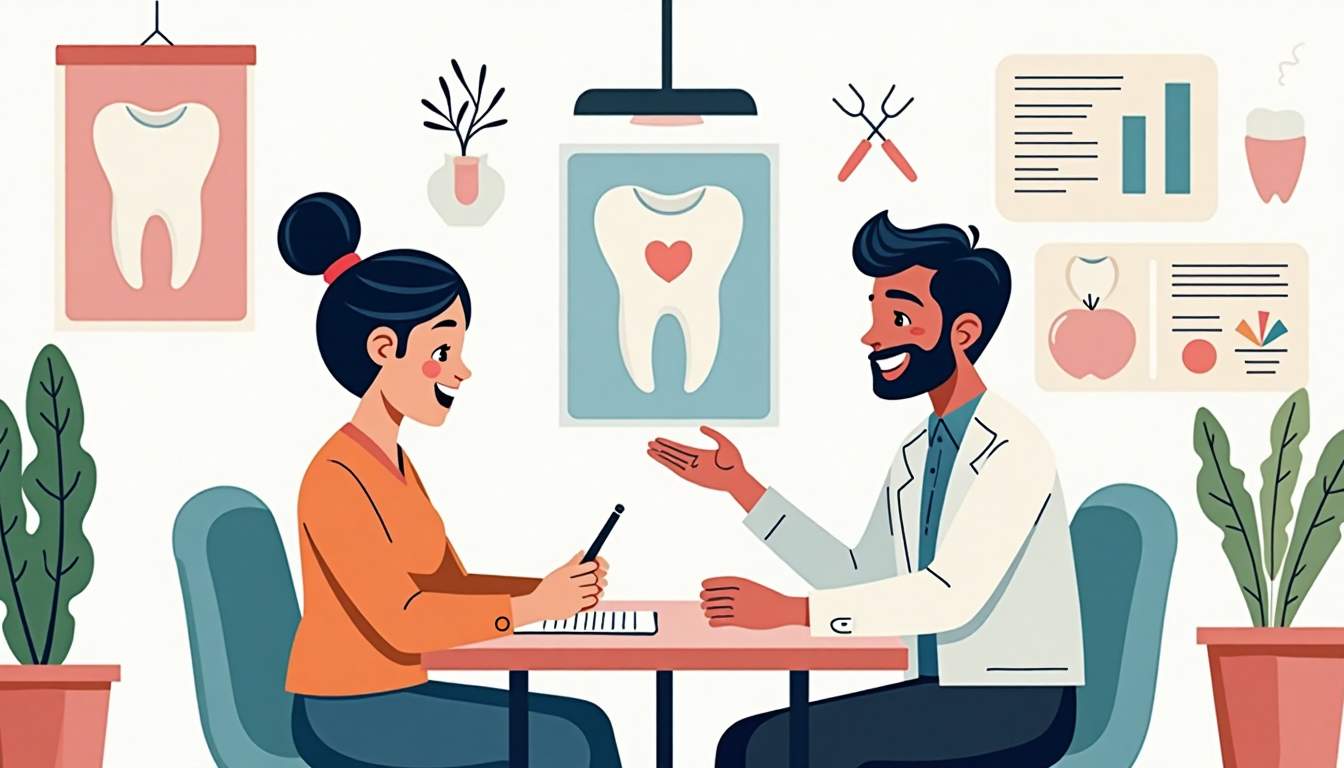
Maintaining good oral health is about more than just brushing and flossing daily. While these habits are essential, regular dental checkups play a critical role in preventing serious oral health problems before they develop. Visiting the dentist routinely allows for early detection and treatment of issues that might otherwise go unnoticed, saving patients from pain, costly procedures, and long-term damage.
This article explores how regular dental visits contribute to maintaining a healthy mouth, the kinds of problems dentists look for, and why prevention is always better than cure when it comes to oral health.
The Importance of Routine Dental Checkups
Many people only visit the dentist when they experience pain or visible problems, but this reactive approach can lead to worsened conditions and more invasive treatments. Routine dental checkups, typically recommended every six months, help identify potential issues early on.

During these visits, dentists perform thorough examinations, cleanings, and screenings that go beyond what can be achieved through home care alone. This proactive approach not only protects teeth and gums but also supports overall health, as oral health is closely linked to systemic conditions like heart disease and diabetes.
Early Detection of Cavities and Tooth Decay
One of the primary benefits of regular dental checkups is the early detection of cavities and tooth decay. Cavities begin as tiny areas of decay that may not cause any discomfort initially. Without treatment, they can grow larger, leading to pain, infection, and even tooth loss.
During a dental exam, the dentist uses specialized tools and X-rays to spot these early signs of decay. By catching cavities early, dentists can provide minimally invasive treatments such as fillings, preventing the need for root canals or extractions later on. Moreover, the dentist may also discuss dietary habits that contribute to cavity formation, such as excessive sugar intake or acidic foods, and suggest alternatives that promote dental health.
Preventing Gum Disease
Gum disease, or periodontal disease, is a common but serious condition that affects the tissues supporting the teeth. It often starts with gingivitis, characterized by red, swollen, and bleeding gums. If left untreated, it can progress to periodontitis, potentially causing tooth loss and increasing the risk of other health problems.
Regular dental checkups include professional cleanings that remove plaque and tartar buildup, which are the main causes of gum disease. Dentists also assess gum health and provide guidance on improving oral hygiene habits. Early intervention can reverse gingivitis and halt the progression of gum disease. Furthermore, dentists may recommend specific products, such as antimicrobial mouth rinses or electric toothbrushes, tailored to individual needs, enhancing the effectiveness of daily oral care routines. For expert care, visit Indental Castle Hill and ensure your oral health stays on track.
The Role of Dental X-rays
Another critical aspect of routine dental checkups is the use of dental X-rays, which play a vital role in diagnosing issues that are not visible during a standard examination. These X-rays can reveal problems such as impacted teeth, bone loss, and hidden cavities between teeth. By utilizing this technology, dentists can create a comprehensive view of a patient's oral health, allowing for more accurate diagnoses and treatment plans.
In addition to identifying existing issues, dental X-rays can also serve as a baseline for monitoring changes in oral health over time. This ongoing assessment can help track the effectiveness of treatments and inform future dental care strategies. Patients often find reassurance in knowing that their dentist is equipped with advanced tools to ensure their oral health is maintained at the highest level.
Comprehensive Oral Health Assessments
Dental checkups are not just about teeth; they encompass a full assessment of the entire oral cavity. This comprehensive approach helps identify a range of issues beyond cavities and gum disease. Regular visits to the dentist can also provide insights into your overall health, as the mouth often reflects systemic conditions. For instance, signs of diabetes, heart disease, and even autoimmune disorders can manifest in the gums and oral tissues, making dental checkups an essential part of preventive healthcare.

Oral Cancer Screenings
Oral cancer is a serious condition that can be life-threatening if not detected early. Unfortunately, it often presents with subtle symptoms that patients may overlook. During routine checkups, dentists perform oral cancer screenings by examining the lips, tongue, throat, and other areas of the mouth for abnormal patches, lumps, or sores. These screenings are crucial because they can catch precancerous lesions before they develop into full-blown cancer, allowing for timely intervention.
Early detection of oral cancer significantly improves treatment outcomes. Regular screenings during dental visits are a vital preventive measure, especially for individuals who use tobacco, consume alcohol heavily, or have a family history of cancer. Additionally, dentists may educate patients on self-examination techniques, empowering them to monitor their oral health between visits. This proactive approach can be life-saving, highlighting the importance of awareness and vigilance in maintaining oral health.
Monitoring Jaw and Bite Health
Problems with the jaw and bite, such as temporomandibular joint (TMJ) disorders, can cause pain, difficulty chewing, and headaches. Dentists evaluate jaw function and alignment during checkups, identifying signs of wear, misalignment, or muscle tension. They may also inquire about habits such as teeth grinding or jaw clenching, which can exacerbate these conditions. Understanding the underlying causes of jaw pain is essential for effective treatment, and dentists often take a holistic view of a patient's oral health to develop a tailored management plan.
Addressing these issues early can prevent chronic discomfort and more serious complications. Dentists may recommend treatments like night guards, physical therapy, or orthodontic interventions to restore proper function and comfort. Furthermore, lifestyle modifications, such as stress management techniques and dietary adjustments, can also play a significant role in alleviating symptoms. By taking a comprehensive approach to jaw and bite health, dental professionals can help patients achieve not only relief from pain but also improved overall quality of life.
Professional Cleanings: Beyond Brushing and Flossing
While daily brushing and flossing are essential, professional dental cleanings provide a deeper level of care that cannot be replicated at home. These cleanings are a cornerstone of preventive dentistry.
Removing Tartar and Plaque Buildup
Even with diligent oral hygiene, plaque can harden into tartar, a calcified deposit that firmly adheres to teeth and cannot be removed by brushing alone. Tartar buildup can lead to gum inflammation and create an environment conducive to bacteria growth.
Dental hygienists use specialized instruments to carefully remove tartar from above and below the gumline. This process helps maintain healthy gums and prevents the development of periodontal disease.
Polishing and Fluoride Treatments
After removing plaque and tartar, teeth are polished to smooth the surfaces, making it harder for plaque to accumulate. Polishing also helps remove surface stains, leaving teeth looking brighter and cleaner.
Many dental offices also offer fluoride treatments during checkups. Fluoride strengthens tooth enamel, making it more resistant to decay. This added protection is especially beneficial for children, teenagers, and adults prone to cavities.
Building a Partnership for Long-Term Oral Health
Regular dental checkups foster a collaborative relationship between patients and their dental care providers. This partnership is crucial for achieving and maintaining optimal oral health over a lifetime.

Personalized Oral Health Advice
During checkups, dentists and hygienists provide tailored advice based on individual risk factors, lifestyle, and oral health status. This guidance may include recommendations on brushing techniques, flossing, diet, and habits such as smoking cessation.
Personalized care empowers patients to take control of their oral health and make informed decisions that reduce the risk of future problems.
Tracking Changes Over Time
Regular visits allow dentists to monitor changes in oral health over time. This continuity helps detect subtle shifts that might indicate emerging issues. For example, a slight change in gum recession or tooth mobility can be addressed before it becomes severe.
Having a consistent dental provider also ensures that any treatments or interventions are well-coordinated and based on a comprehensive understanding of the patient's history.
Addressing Common Concerns About Dental Visits
Despite the benefits, some people avoid regular dental checkups due to fear, cost, or perceived inconvenience. Understanding and addressing these concerns can encourage more people to prioritize their oral health.
Overcoming Dental Anxiety
Dental anxiety is a common barrier to regular checkups. Many dental practices now offer a range of options to help patients feel more comfortable, including sedation dentistry, calming environments, and patient education.
Communicating openly with the dental team about fears can lead to personalized strategies that make visits less stressful and more manageable.
Managing Costs and Insurance
Cost concerns can deter people from seeking preventive care. However, regular checkups often save money in the long run by avoiding expensive treatments for advanced problems.
Many dental offices offer flexible payment plans, accept insurance, or provide discounts for preventive services. Patients are encouraged to discuss financial options with their dental provider to find solutions that fit their budget.
Conclusion
Regular dental checkups are a cornerstone of maintaining a healthy mouth and preventing major oral health issues. Through early detection, professional cleanings, comprehensive assessments, and personalized care, these visits protect teeth and gums from decay, disease, and other complications.
By prioritizing routine dental care, individuals can enjoy a lifetime of healthy smiles, avoid pain and discomfort, and reduce the risk of systemic health problems linked to poor oral hygiene. Scheduling regular dental checkups is a simple yet powerful step toward overall well-being.





